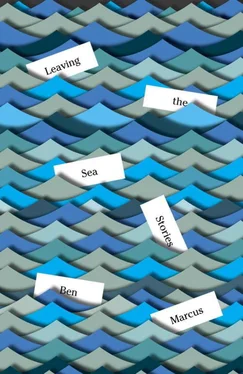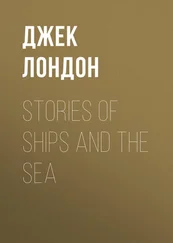Maybe it was the air of the Moors that had found its way inside him, because he was filling up with a great ballooning warmth, and this dear woman was offering her face to him, such a fine and well-fashioned face. What did one really ever do with faces? Something was required now, something really special. It was too awful to think that he would not be allowed to take this face home for his very own, to hold it up and gaze at it whenever he felt sad or tired. How good it would feel to cuddle up against this woman, to feel the warmth of that skin and maybe the soft, sweet wind from her mouth that could puff some of the terrible dust away from him. There are small bits of them, those people who have gone before us, blowing over me. Madame, can you help me? Could she perhaps be invited to assist here, to shield him with the wind that only her mouth could make? Could it truly hurt to ask, and to ask as a creature new to this world, having crawled free of the trees, new and needing everything she alone could provide?
He pushed out his lower lip and opened his eyes wide and sweet for the capture. He would give her his best and most innocent face.
“Tommy wants cah-weeg to hold him.”
There, he’d said it.
Her face went big and long and open. It seemed that she was trying to swallow.
“What?” She lifted her cheeks into a question, and Thomas thought it must feel good to want to know something as badly as that. If only he could speak for her now, to say what she was too afraid to say.
Mommy needs you to answer now, honey. Please tell me what’s wrong.
It was dark and it was cold and the face looking at him so sweetly, glowing at him, had the most splendid mouth. Too many trees, well, this was what happened, wasn’t it: The air turned solid and dark and you couldn’t see or do much of anything. He liked trees, of course, they had their place in the world, but this didn’t seem right. Trees should be a comfort, not a problem. Whose idea was this, really? June would be quite upset, quite upset indeed. He’d need to get to her and be sure she was okay. Had he left her somewhere safe?
He rather knew this woman looking down on him, smiling, and, he thought, with time he could come to love her, and this would be okay. Would she be taking him home, now?
Thomas was on his back now, and the shade of the great trees felt wonderful.
“ Ho dmee. Pweese,” he said to the woman. “Pweese ho dmee.”
There was a cup of water on his desk and a damp cloth in Thomas’s hand. The cloth was pressed to his head, and his head felt exquisitely nice. The hand holding the cloth was his very own and it was really a fine hand that you could not complain about. Everything was in order. He was sitting. He was safe. He was holding quite a pleasant damp cloth and he couldn’t recall his forehead ever feeling better than now, with this nubby wet washcloth pressed against it. Smuggle it home. Oh, you must. He had not thought to press a cool cloth to his head all the time, even if it was awkward to hold it there while walking. He had not thought that he could do this, but really he could, why not, what was stopping him? It felt delicious and perfect. Thomas wondered if the others were on to this. What a first-rate discovery, really. It was sad to think this cloth would dry out someday and begin to chafe and disturb his head. But that was dark thinking. No more of that for me, he thought. This is my time, my time to enjoy. These aren’t even small pleasures. They are the largest kind there are.
The building thumped, and a hoarse cry—from deep inside a bag, was it?—sounded. He steadied his cup of water. Oh it could have been anything. Offices make sounds, don’t they, and what did he even know about the immense workings of a building like this? Someone must have run the chart on this and checked it out. Of course they had. Clearly it was not for him to worry about. Oh for more of this bait not taken. Where would they store it now that he couldn’t be fooled?
Thomas would ride the day out. If he heard something he’d say nothing. He’d do only the fair work on his desk. At five he’d shed the Crawford bibbing in the changing room and slip on his coat and hat. A glass of water would be nice. Perhaps some more water to splash on his face and wake him up for his journey. It’d be good to get home. When the doors shooshed open he’d be swept into the street with the rest of them and he’d tuck into the wind, lean hard against it, and start the long walk back. See you, he’d say, to anyone listening.
With luck, his boy will be waiting at the door when he comes home and Thomas will gather him up and take him inside for his dinner and bath. Tonight he’ll sit with the boy over food at the low wooden table he’d once built. There’ll be the usual chores and the materials to be readied for tomorrow’s trip to work. Everything in the house just so, the surfaces sponged clean with soap, and he’ll certainly be sure to remember to lock the door tonight.
It will feel especially good to remove his clothes and pull on his night shorts and sleep shirt. They are soft and always clean and this is an outfit he loves to wear.
Off with the lights downstairs and a story read aloud at the foot of the lad’s bed. A story about a horse who is lost for such an incredibly long time. The horse grows old and forgets it was ever lost and the girl who has lost the horse becomes a distracted adult, too busy to say anything nice to anyone. Until one day she is reminded of her horse and she weeps and thinks of the wonderful times she had as a girl. On the day the horse dies, thousands of miles away from her, the girl, a young woman now, stirs in her sleep and suffers a terrible dream.
After he reads the story, a last check of the house and a shush and a kiss to the boy before shutting out his light. His son’s eyes will shine for a moment in the darkness, and Thomas will, as is his habit, wait there in the silence of the doorway and listen for a softly whispered “Dad.”
And even if June is already in bed and plugged into her machine by the nurse when Thomas comes into the bedroom, well, he will still lower the bed guard, lift the wires, and crawl in next to her, if just for a moment.
When the streetlights sizzle out finally and the cries from his son’s room grow quiet, he will take the moment for himself, he will take it and hold it and try not to squeeze so hard that he kills everything that is beautiful about it. These are the most perfect seconds ever delivered to the world, aren’t they? It is like someone has packaged them in a soft bag that you can unwrap until they flow over you. Quiet, with cold air, and everyone else so wonderfully hushed, when all you can hear is the far-off singing that has always meant everyone around you, every last creature, is doing fine. What a perfect time it is to be alive, a great time to breathe in the sweet air.
He will hold himself perfectly still next to his sleeping wife and listen so hard it hurts, until all sounds but his own breathing are vanished from the air, and then Thomas will sit up and look at his Juney.
“I missed you today,” he will say.
And then Thomas will lean over to kiss his wife good night.
My thanks to the editors and early readers of these stories: Heidi Julavits, Denise Shannon, Deborah Treisman, Jordan Pavlin, Andrew Carlson, Andrew Eisenman, Deb Olin Unferth, Matthew Derby, Rob Spillman, Ben Metcalf, Halimah Marcus, Sumanth Prabhaker, Marty Asher, John Freeman, Ellah Allfrey, and Bradford Morrow.
For insight, generosity, and friendship, thank you to Michael Chabon. Thank you to Sam Lipsyte, for everything. Thanks to Matthew Ritchie and Anne MacDonald, Artspace Books and Madras Press. To Yaddo and the MacDowell Colony, thank you for the space and time. Thank you to Chris Doyle and Michael Sheahan for the most ideal space of all.
Читать дальше












